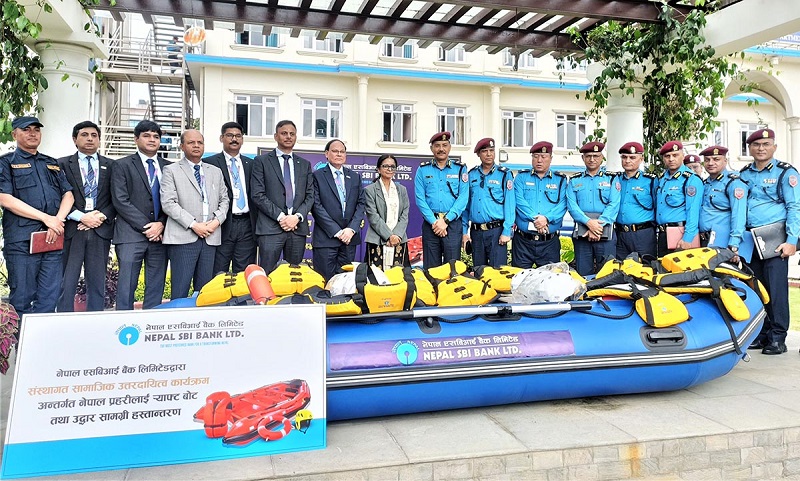Present and Future of Digital Connectivity in the Context of Nepal
29th June 2020, Kathmandu
Data has evolved significantly, and it’s hard to imagine everyday lives without the use of the internet. Who remembers the days when you had to sit at your computer waiting for a connection to establish with your Internet Service Provider (ISP)? Indeed, I am talking about dial-up Internet access.
Technology has come a long way with the use of FTTH (Fiber To The Home) that uses optical fiber to provide high-speed internet access. That’s not it!
Noticed how our attention has shifted to mobile data? Mobile phones first came into use in 1999 A.D. in Nepal but without any internet service.
Every successful generation of wireless mobile communication – abbreviated to “G” – have shaped our lives. With the introduction of 4G service in Nepal in 2017, we witnessed a breakthrough in mobile internet service.
At present, the mobile penetration rate stands at 129% in Nepal, while the internet has reached 72% of the population as per the Nepal Telecommunications Authority.
With this, we have stepped into a world where our daily lives and works are dependent on the use of the internet. It has become a necessity as the primary source of information and communications.
Importance of ICT for the betterment of the Nation
We all know how crucial the internet has become in our personal and professional lives. Realizing the importance of Information and Communications Technology (ICT), the government has already come up with the Digital Nepal Framework.
Though this pandemic created a significant health crisis, it has supported in intensifying digitization in multiple sectors such as work from home and online learning. Undoubtedly, the pandemic has tested the preparedness of the digital shift in Nepal.
Many educational institutes in urban centers have shifted to online education, and employees have started working from home. However, for the lack of connectivity or in the absence of quality internet service in rural parts of the country, people are deprived of the advantages that connectivity brings to them.
The preparedness of dealing with remote learning and working scenario in city areas prove that there has been good progress in ICT even as the country lagged far behind in the global ICT development index. This pandemic, government policies such as ICT Policy, National Broadband Policy, and Digital Nepal Framework underline the need for ICT development with broadband. Besides infrastructure development, there is also a need to increase digital literacy to reap benefits from digitization by narrowing the current massive digital divide in the country.
Challenges from a Customer Point-of-View
When we talk about a customer, we need to address their capacity to afford a technology followed by the customer care service. But high-speed and reliable internet continues to be the most significant gaps in Nepal’s online services.
The inability to afford service ties up to the economy of the country and its GDP. Furthermore, the per capita income in urban areas is usually higher than in rural areas.
Ultimately, this leads to a difference in the ability to purchase the service or technology. It is known as Digital Poverty.
Now, the accessibility of the internet, which, as mentioned earlier, is quite a pitfall in the rural areas. This creates challenges in communication and customer care. Moreover, digital literacy is a crucial factor when it comes to customer care, as users need to understand the basic features of the technology.
Cybersecurity in the Context of Nepal
Awareness is the first line of defense when it comes to cybersecurity. With more people shifting to digital platforms, the importance of cybersecurity and data security is eventually coming to light.
Most Nepali companies deal with data, and that includes the major online service providers in Nepal. The security vulnerabilities in the database of these companies can compromise the personal information of thousands of customers.
And, there have been many incidents of data dumps and website defacing in the past. Most companies ignore cybersecurity in the company’s investment. But when it comes to securing data, there’s another factor that comes to play, which is proper awareness and training among the staff.
Another risk factor when it comes to cybersecurity in Nepal is vendor dependency. Moreover, outsourcing to third-party agents could compromise the organization’s data.
Several factors need attention to achieve a secure work environment. To sum it up, decision-makers and policy-makers in Nepal have yet to realize the urgency of proper guidelines in the cybersecurity domain.
Role of Government and Future Plans
The government is going forward with the Digital Nepal Framework. Its primary focus should be on developing the ICT and telecommunications sector.
With the budget announcement for the fiscal year 2077/78, the government distinctly showed interest in developing ICT infrastructures. The government has allocated Rs 7.13 billion for the ICT sector in the coming fiscal year. The new budget prioritized cashless economy and Nepal and, as a result, focuses on enhancing cybersecurity.
Currently, all 77 district headquarters in Nepal have access to broadband services like 3G-HSPA, 4G-LTE, WiMAX, and ADSL. In this coming fiscal year, the government shall focus on expanding the 4G network and deliver FTTH throughout the country. The critical factor for the digital shift is connectivity.
It is quite fair to say that the government can’t change the course of digitization in Nepal alone. However, the telco and ICT sectors can easily support the Digital Nepal movement of the government.
Final Say
With combined forces, the government needs to build a resilient infrastructure for robust connectivity and affordable broadband services. The critical thing to address is that there is a whole ecosystem, and its components are interdependent.
As announced in the budget by the government, the optical fiber project, which is considered as the backbone for Digital Nepal, must be completed within two years to link all districts with information superhighway and expanding broadband connection to beyond district headquarter level.
When we are dreaming big for digitization, the systematic way could be to implement a multi-stakeholder approach so that experts in the field can collaboratively generate practical ideas. Similarly, third-party risk assessment is crucial in securing the privacy of the organization.
At the same time, when we are talking about developing ICT and telco infrastructure, we also need to address the cyber threats that it would invite upon. Security and privacy are two sides of the same coin. Figuring out a way to secure data privacy and other security layers will bring a balance in this ecosystem.






